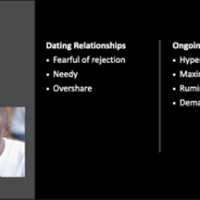Today’s post from Seth Godin…
sounds like a call to action.
Seth Godin:
Non-profits have a charter to be innovators
The biggest, best-funded non profits have an obligation to be leaders in innovation, but sometimes they hesitate.
One reason: “We’re doing important work. Our funders count on us to be reasonable and cautious and proven, because the work we’re doing is too important to risk failure.”
One alternative: “We’re doing important work. Our funders count on us to be daring and bold and brave, because the work we’re doing is too important to play it safe.”
The thing about most cause/welfare non-profits is that they haven’t figured out how to solve the problem they’re working on (yet). Yes, they often offer effective aid, or a palliative. But no, too many don’t have a method for getting at the root cause of the problem and creating permanent change. That’s because it’s hard (incredibly hard) to solve these problems.
The magic of their status is that no one is expecting a check back, or a quarterly dividend. They’re expecting a new, insightful method that will solve the problem once and for all.
Go fail. And then fail again. Non-profit failure is too rare, which means that non-profit innovation is too rare as well. Innovators understand that their job is to fail, repeatedly, until they don’t.
Related articles
- Non-profits have a charter to be innovators (sethgodin.typepad.com)



































































































I think this could be an interesting discussion. It is one that I am engaging in on a number of fronts for far less analytical/academic than practical reasons.
Small nonprofits that are close to their communities and largely membership driven are a primary source of innovation in this sector. They almost always begin from an innovative idea and are agile enough to respond both to what does and doesn’t work. And given very modest financial requirements and a workload borne largely be activists and volunteers they are far less beholden to those who write the cheques. And it is here that almost all that happens in the nonprofit sector that is new and exciting originates.
Those that are successful achieve wider recognition. And the process that occurs so depressingly often is the activists and volunteers begin to be replaced by professionals with well developed (perhaps even rigid?) norms and beliefs. These are the folks who can and do access funding and more often than not they do achieve rapid growth. But what was once a collective of activists and very engaged volunteers often if not usually evolves into a service organization, perhaps even a very good and innovative one. But one that no longer sees itself standing in solidarity with their peers but rather serving a disadvantaged community — them and not us.
If anyone is interested, I have a list of projects and initiatives that I have been involved in personally or have followed where I have watched this happen and a few that have avoided this fate by deliberately choosing a different path and engaging in the incredibly difficult discipline of sticking to this.
Terry
LikeLike
I think the problem goes a bit deeper than this. I worked in this sector for twenty-five years and studied it at the doctoral level. What I kept coming back to again and again was that there is an inevitable shaping of agendas by funders. We tend to think that these are charities, and certainly most are registered charities. But for almost all, the bulk of their funding is either government or large corporate bodies. And these funders inevitably have agendas of their own. Indeed the art of grant writing is one of aligning organizational interests with those of funders (or at least giving a strong impression of doing so). Those interested in this topic might want to check out a collection of essays by radical practitioners entitled The Revolution Will Not Be Funded.
Cheers
Terry Milne
LikeLike
Hey TErry
I think that’s exactlt the dynamic of which Seth Godin Speaks..Thanks for the tip on The Revolution Will Not be funded..
I think Seth is less interested in investing energy in critique and anaysis paralyis, and more interested in investing energy in moving forward to create a better world ..
copy nature : innovate til you suceed…
k
LikeLike
….Takes courage to innovate.
LikeLike
it takes courage to recover too
innovation is simply what nature does all the time…
if we act like we’re part of nature then innovation is simply natural and expected
k
LikeLike
If only! Maybe we need occasional reminders like this…
LikeLike